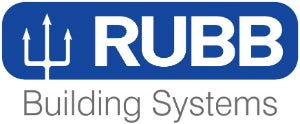Rubb’s bespoke aviation hangars are designed for maintenance, repair and overhaul (MRO) operations in aerospace applications.
Here are the top ten points to consider when purchasing a new aircraft hangar.
1. The overall Rubb structure weight, including cladding, is approximately one third lighter than a conventional hangar.
2. The cost of a Rubb aircraft hangar works out at around half the price of a conventional hangar of the same size.
3. With Rubb hangars being classed as semi-permanent structures, you are able to claim for reduced building rates.
4. Rubb PVC fabric cladding has a manufacturer’s warranty of ten years, but Rubb buildings have been in use around the world for more than 30 years with the original PVC sheets.
5. Aircraft hangar steel framework is hot dip galvanized, post-production, to eliminate any chance of corrosion.
6. Rubb aircraft hangars have been proven to last more than 40 years with only light maintenance to consider.
7. Rubb hangars can be custom-designed to suit any client requirements up to 120m clear span width, by any length.
8. Rubb can work alongside main contractors or we can lead a project from start to finish, as provided for easyJet at Gatwick Airport (pictured above).
9. Rubb hangars are fully relocatable. MRO contractors and operations are subject to frequent change, and airports are always expanding. Rubb hangars are designed with business expansion in mind.
10. Rubb semi-permanent galvanized steel framed and PVC-cladded aircraft hangars are the new cost-effective solution for all airport, airline and MRO hangar requirements.











